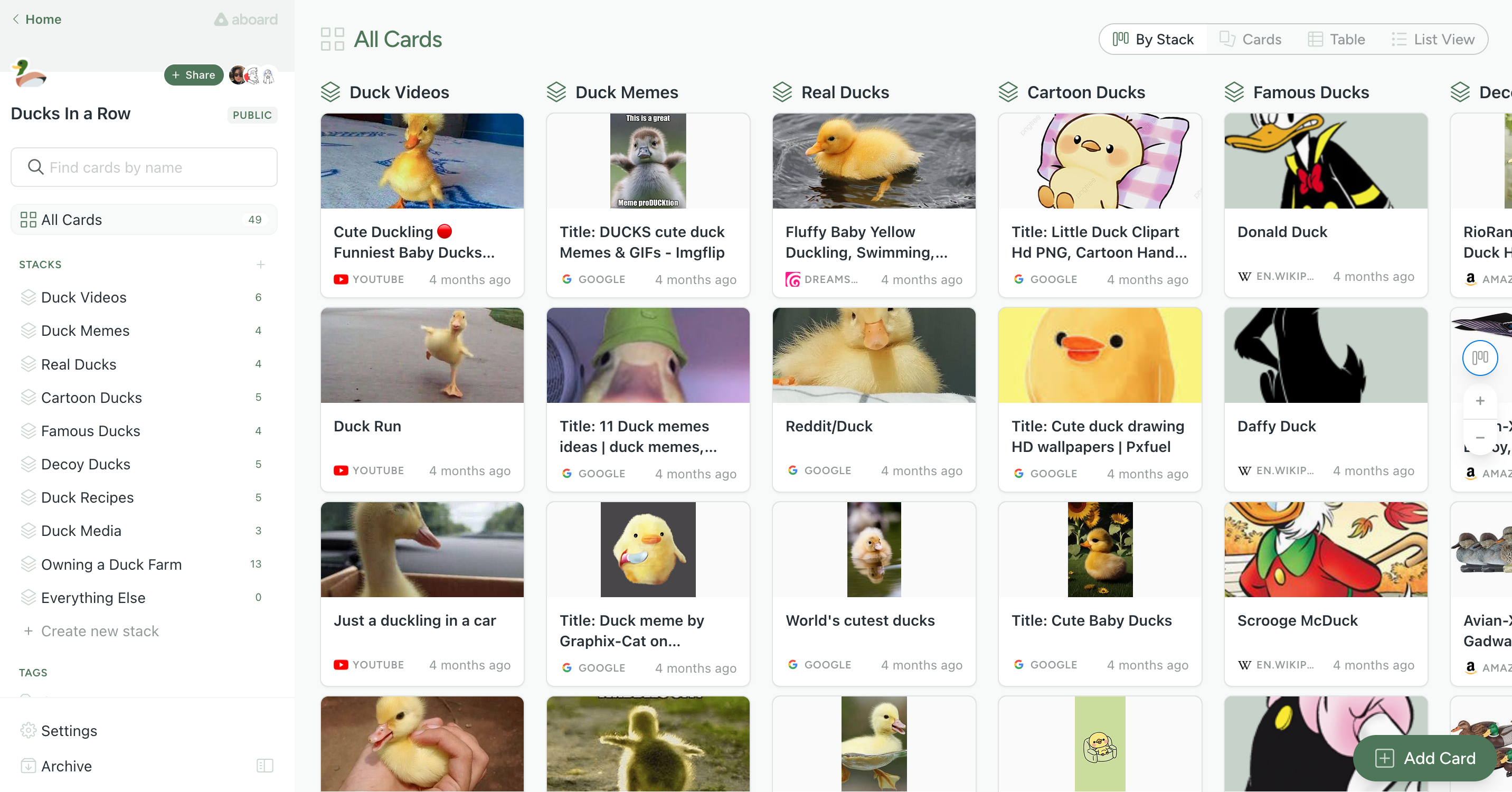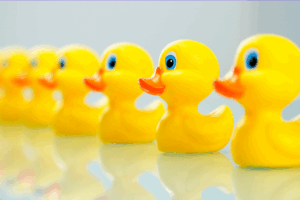Ducks & Decks
“This is different than what they said they were going to launch a year ago.”

Your ducks in a row...or in columns.
Hello, it’s cruise director/Aboard co-founder Paul Ford, here with some product news and then some duck observations.
We’ve received tons of feedback recently, a lot of it very helpful and actionable. Some makes us proud, some makes us drink. But one of the more curious pieces of feedback is one we often hear second-hand, or see in tweets (or Discords I was invited to years ago where no one knows I’m lurking): “this is different than what they said they were going to launch a year ago.”
Fair! Back in 2022, it looked like we were building “web-based groupware” and then nine months later we showed up with what looks like “social bookmarking.” People went: “Huh.” Or grumped about it. I don’t judge them for this; I complain about software, too.
Want more of this?
The Aboard Newsletter from Paul Ford and Rich Ziade: Weekly insights, emerging trends, and tips on how to navigate the world of AI, software, and your career. Every week, totally free, right in your inbox.
But our thinking wasn’t, “Let’s pivot to social bookmarking.” Our thinking was more like, “if we’re launching a data management platform built on web technologies, why doesn’t it really work with the web? What would that look like?” Because most web tools run on the web but aren’t part of the web. And this turned out to be a really fundamental, difficult shift to pull off. Partly because the web is a giant sweaty mess of greed and misdirection where drunken robots run amok. But it’s also where we spend much of our lives and buy everything!
We’re not quite there yet. We’ll never fully be there, because the mess keeps expanding. But we keep getting closer and closer to a system where people can create or import data without thinking about it as “data”—URLs, links to Google Docs, text snippets, personal contacts, PDFs, all the messy stuff we make to get along in a world of drunken robots. In cards, stacks, and boards.
How will we know we succeeded? People will take us for granted. We’ll become invisible—people will see their own data and links, not our software. Not there yet! But thank you for joining us.
Quack
I asked our team member Aya to make us a board of ducks. When you’re the president of a company you sometimes call someone up and say, “take an hour and collect a bunch of ducks.” I did this purely because I wanted to be able to say, “Aboard helps you keep your ducks in a row.” Yes, this is terrible, but you’d be shocked at how much of sales and marketing involves putting pictures of ducks into decks.
But as always happens with this product I ended up consuming a ton of duck content and learning a lot about duck farming. Perhaps the most valuable thing I learned was why I didn’t want to keep ducks. An extremely Australian man talking about how much ducks suck turns out to be the content I crave:
- Ducks are noisy and messy, unlike chickens
- You have to put them to bed, unlike chickens
- They attack chickens, which is hard on the chickens
- Duck eggs aren’t tasty, unlike chicken eggs (SUBJECTIVE)
- They are difficult to emotionally bond with, unlike chickens (HMM)
You’ll never guess what he trades his ducks for. I do think this man has a pro-chicken bias but after watching his video I too was ready to say, [to heck with] ducks.
But there are good things about ducks too, though. Ducks are more sustainable to farm than chickens in wet areas. I learned that there is a duck-related song on YouTube with 591,376,977 views, which, when you watch it, you wouldn’t expect that. Finally, I learned the word “monogastric” (single-stomached). You’re monogastric, and ducks are too. They have gizzards though.
There’s a lot more, but that’s more than enough.


